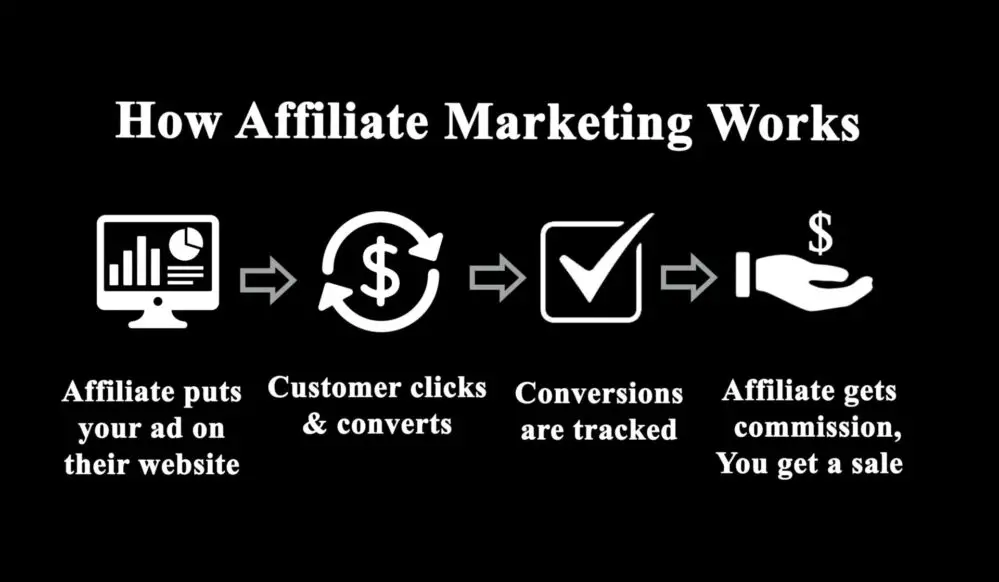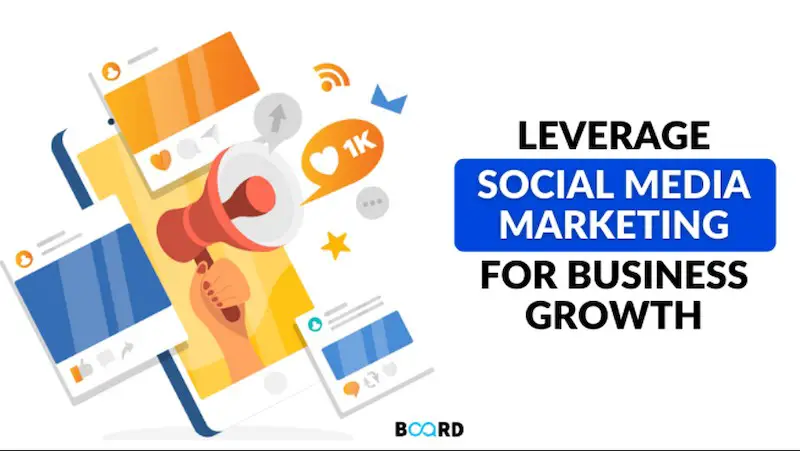10 Proven Affiliate Marketing Strategies for Success

Welcome, affiliate marketing enthusiasts! Today, we'll dive into the world of affiliate marketing and explore 10 Proven Affiliate Marketing Strategies for Success. Whether you're just starting out or a seasoned pro, these tactics will give you the edge you need to succeed in this lucrative industry.
Affiliate marketing is a powerful way to earn passive income by promoting other companies' products or services and earning a commission for every sale you generate. However, with so much competition out there, simply slapping affiliate links on your website won't cut it. You need a solid game plan and effective strategies to stand out from the crowd.
Understanding Affiliate Marketing

Before we dive into the strategies, let's quickly cover the basics of affiliate marketing. It's a performance-based marketing model where you, as an affiliate, promote a merchant's products or services on your website, social media channels, or other platforms. When someone clicks on your unique affiliate link and makes a purchase, you earn a commission.
The key players in this ecosystem are:
- Merchants: The companies that offer affiliate programs and provide products or services.
- Affiliates: That's you! You're the one promoting the merchant's offerings and earning commissions.
- Networks: These platforms connect merchants with affiliates, making it easier to find and join affiliate programs.
One of the biggest benefits of affiliate marketing is the ability to earn passive income while promoting products you genuinely believe in. It's a win-win for both merchants and affiliates.
Identifying Profitable Niches
The first step to success in affiliate marketing is choosing the right niche. A profitable niche is one with a hungry audience willing to spend money on products or services that solve their problems or fulfill their desires.
To identify a profitable niche, start by researching your interests and passions. What topics are you knowledgeable about? What problems can you help people solve? Use tools like Google Trends, keyword research tools, and forums to gauge the demand and competition for different niches.
Building a Strong Foundation
Once you've identified your niche, it's time to build a strong foundation for your affiliate marketing business. This includes:
- Creating a Professional Website or Blog: Your website is your virtual storefront, so make sure it looks professional and trustworthy. Choose a clean, user-friendly theme and focus on creating a seamless user experience.
- Developing a Strong Brand Identity: Your brand is what sets you apart from the competition. Decide on a unique brand name, create a logo, and develop a consistent brand voice and messaging across all your platforms.
- Building an Engaged Audience: An engaged audience is crucial for affiliate marketing success. Start building your audience by creating valuable content, participating in online communities, and leveraging social media platforms.
Selecting the Right Affiliate Programs
With so many affiliate programs out there, it's important to choose the right ones for your niche and audience. When evaluating affiliate programs, consider the following criteria:
- Commission rates: Higher commission rates mean more earnings for you.
- Cookie duration: Look for programs with longer cookie durations to get credit for more sales.
- Product quality: Only promote products or services that you genuinely believe in and would recommend to others.
- Merchant reputation: Research the merchant's reputation and customer reviews to ensure you're promoting a reputable brand.
Content Creation Strategies
Content is king in affiliate marketing. High-quality, valuable content not only helps establish you as an authority in your niche but also drives targeted traffic and affiliate sales. Here are some content creation strategies to consider:
- Product Reviews: Provide in-depth, honest reviews of products or services you're promoting. This helps build trust with your audience and encourages them to make informed purchases through your affiliate links.
- How-To Guides and Tutorials: Create step-by-step guides and tutorials related to your niche. These types of content are highly valuable and can attract a lot of search engine traffic.
- Comparison Posts: Compare different products or services within your niche, highlighting their features, pros, and cons. This can help your audience make more informed decisions.
- Listicles and Roundups: Create listicles and roundups of the best products or services in your niche. These types of posts are easy to consume and can generate a lot of social shares and backlinks.
SEO for Affiliate Marketing

Search engine optimization (SEO) is crucial for driving organic traffic to your affiliate content. Here are some SEO strategies to implement:
- On-Page SEO: Optimize your content with relevant keywords, meta descriptions, and alt tags. Use header tags (H1, H2, H3) to structure your content and improve readability.
- Off-Page SEO: Build high-quality backlinks from authority websites in your niche. Participate in relevant online communities and forums to increase your visibility and credibility.
- Technical SEO: Ensure your website is mobile-friendly, has a fast loading speed, and is regularly crawled by search engines.
Email Marketing Tactics
Email marketing is a powerful tool for affiliate marketers. By building an email list of engaged subscribers, you can promote affiliate products or services directly to a warm audience and drive more sales.
Here are some email marketing tactics to consider:
- Welcome Series: Create a welcome email series to nurture new subscribers and introduce them to your affiliate offerings.
- Exclusive Deals and Promotions: Offer exclusive deals, discounts, or promotions to your email subscribers to incentivize them to make purchases through your affiliate links.
- Storytelling and Value-Driven Content: Share stories, case studies, and valuable content related to your niche and affiliate products. This helps build trust and authority with your audience.
Leveraging Social Media
Social media is a powerful platform for affiliate marketers to connect with their audience, build relationships, and promote affiliate products or services. Here are some strategies to leverage social media:
- Create Visually Appealing Content: Share high-quality images, videos, and graphics related to your niche and affiliate offerings. This can help increase engagement and drive traffic to your website.
- Engage with Your Audience: Respond to comments, ask questions, and participate in relevant discussions. This helps build trust and strengthen your relationship with your audience.
- Collaborate with Influencers: Partner with influencers in your niche to reach a wider audience and tap into their engaged following.

Utilizing Paid Advertising
While organic traffic and email marketing are powerful strategies, paid advertising can also be a valuable tool for affiliate marketers. Here are some paid advertising options to consider:
- Pay-Per-Click (PPC) Advertising: Run targeted PPC campaigns on platforms like Google Ads and Bing Ads to drive traffic to your affiliate landing pages or product review pages.
- Social Media Advertising: Leverage social media advertising platforms like Facebook Ads, Instagram Ads, and TikTok Ads to reach your target audience and promote your affiliate offerings.
- Native Advertising: Place sponsored content or advertorials on relevant websites or platforms to reach a highly engaged audience.
Tracking and Analytics
Tracking and analyzing your affiliate marketing performance is crucial for optimizing your strategies and maximizing your earnings. Here are some key metrics to monitor:
- Click-Through Rate (CTR): The percentage of people who click on your affiliate links after viewing them.
- Conversion Rate: The percentage of people who make a purchase after clicking on your affiliate links.
- Earnings per Click (EPC): The average amount you earn per click on your affiliate links.
- Customer Acquisition Cost (CAC): The cost of acquiring a new customer through your affiliate marketing efforts.
Use tools like Google Analytics, affiliate network dashboards, and other tracking software to monitor these metrics and make data-driven decisions to improve your strategies.
Building Relationships with Merchants
Building strong relationships with merchants can open up opportunities for better commissions, exclusive deals, and long-term partnerships. Here are some tips for fostering positive relationships with merchants:
- Communicate Effectively: Reach out to merchants and introduce yourself as an affiliate. Share your marketing strategies and audience insights to demonstrate your value.
- Provide Feedback: Offer feedback and suggestions to merchants on how they can improve their products, services, or affiliate programs.
- Negotiate Better Terms: As your audience and sales grow, you may have more leverage to negotiate better commission rates or exclusive deals with merchants.
Continuous Learning and Adaptation
The affiliate marketing landscape is constantly evolving, with new trends, technologies, and best practices emerging all the time. To stay ahead of the curve, it's essential to:
- Stay Updated with Industry Trends: Follow industry blogs, podcasts, and influencers to stay informed about the latest trends and changes in affiliate marketing.
- Learn from Successes and Failures: Analyze your successes and failures to identify what works and what doesn't. Use these insights to refine and improve your strategies.
- Implement Continuous Improvements: Don't be afraid to experiment with new tactics, tools, and strategies. Continuously strive to improve your affiliate marketing game.
Scaling Your Affiliate Business
As your affiliate marketing business grows, you may want to consider scaling your operations to increase your earnings and reach. Here are some strategies to consider:
- Outsourcing Tasks: Outsource time-consuming tasks like content creation, social media management, or advertising to free up your time and focus on higher-level strategies.
- Expanding into New Niches or Markets: Once you've mastered one niche, consider expanding into related or complementary niches to diversify your income streams.
- Hiring a Team: As your affiliate business grows, you may need to hire a team of writers, marketers, or virtual assistants to help you manage and scale your operations.
Avoiding Common Pitfalls
Affiliate marketing can be a lucrative business, but it's not without its challenges and pitfalls. Here are some common mistakes to avoid:
- Promoting Low-Quality Products: Promoting products or services that you don't genuinely believe in or that provide a poor user experience can damage your reputation and credibility.
- Violating Merchant Terms and Conditions: Make sure to carefully read and understand the terms and conditions of each affiliate program you join to avoid any violations that could lead to account suspensions or terminations.
- Relying Solely on One Traffic Source: Diversify your traffic sources to avoid relying too heavily on any single platform or channel.
- Neglecting Customer Support: Providing excellent customer support can help build trust and loyalty with your audience, leading to more sales and repeat customers.
Conclusion
Affiliate marketing success doesn't happen overnight. It requires dedication, perseverance, and a willingness to continuously learn and adapt. By implementing the proven strategies outlined in this article, you'll be well on your way to building a thriving affiliate marketing business.
Remember, the key is to always prioritize your audience's needs and provide genuine value. Focus on building trust and authority in your niche, and the affiliate sales will follow.
So, what are you waiting for? Start implementing these strategies today, and watch your affiliate marketing success soar to new heights!

